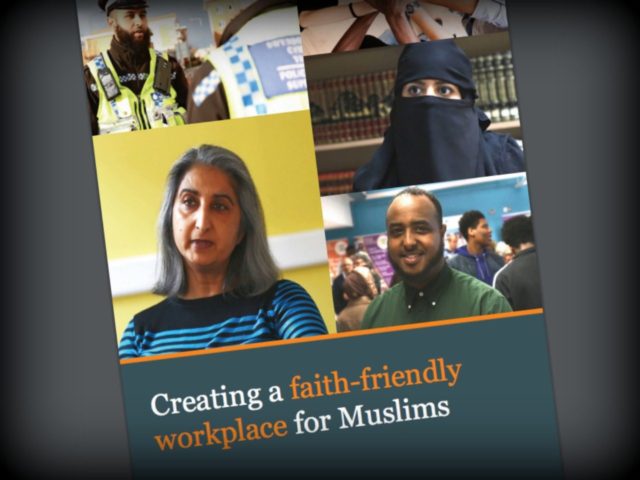A government report has found Muslims are the least likely faith group in Wales to be employed. In response, it demands places of work provide halal food, prayer rooms, and accommodate face veils and even “cultural differences around handshaking and direct eye contact”.
The “Creating a faith-friendly workplace for Muslims” report concedes that some employers “are trying hard to attract Muslim staff but are finding it difficult”. Yet the authors chose to focus solely on “creating faith-friendly workplaces” rather than examining Muslim attitudes to work and integrating with Welsh society.
Produced by the Equality and Human Rights Commission in Wales last month, the document reveals that Muslims are failing to find work despite being more educated than average and more likely to be of working age (49 per cent of the Muslim population is under the age of 25).
The report, first reported by Wales Online, found that 27 per cent of the Muslim population in Wales holds a degree, compared with 25 per cent of the overall population – yet they are around 20 per cent less likely to be in work.
Across Wales, 69 per cent of Muslims aged 16 to 24 are economically active compared to 86 per cent of the general population. Among those aged 24 to 49, some 67 per cent are economically active compared to 85 per cent of the overall population.
“Muslim women and men can offer valuable skills to the Welsh economy. They are younger and, far from being uneducated, are slightly more likely to have a degree than the Welsh average,” authors write.
Accordingly, they prescribe a raft of special exceptions and accommodations for one faith because “creating a faith-friendly organisation will help attract, welcome, support and retain people of all faiths”.
Specifically, the authors encourage employers to provide jugs of water in toilets for Muslims who don’t want to use toilet paper, accommodate hijabs and face veils (because “dressing modestly is important for many Muslims”), provide halal or vegetarian food, and have specially-designated Muslim prayer rooms.
“Be sensitive to cultural differences around handshaking and direct eye contact. It is not about being impolite,” the document adds.
Furthermore, it advises employers to “attend mosque open days and agree to hold job fairs within them”, provide mentoring for Muslims, and “build relationships with organisations and groups that work with Muslim communities”.

COMMENTS
Please let us know if you're having issues with commenting.